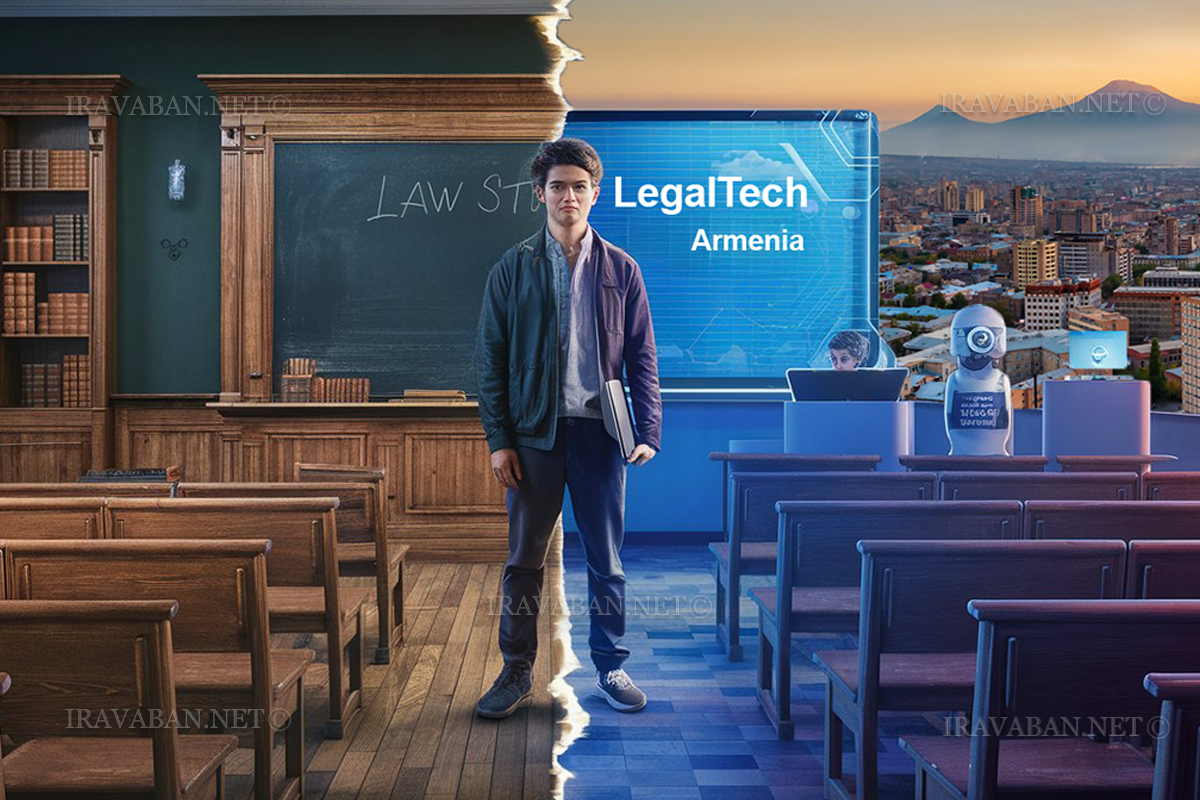In the second article of Iravaban.net’s innovative “LegalTech Armenia” series, titled “The Digital Arsenal of a Lawyer: How Should Armenian Universities Prepare Future Lawyers,” we will explore how Armenia can transform legal education to prepare a new generation of digital lawyers.
As we’ve previously mentioned, our journalists and experts, armed with the latest technological tools, including advanced applications of artificial intelligence, will present analyses, exclusive interviews, and engaging stories, also creating digital photographs of these materials. We will uncover how blockchain, machine learning, and other innovative technologies are transforming legal practice, the judicial system, and legislative processes.
Introduction
The legal profession stands on the brink of unprecedented changes. Artificial intelligence, blockchain, and big data are no longer abstract concepts, but real tools that are reshaping legal practice.
Current Challenges
- Outdated curricula
- Insufficient technical infrastructure
- Lack of digital skills among faculty
- Limited opportunities for practical training
- Ethical issues in the application of digital technologies
Necessary Steps Based on International Experience
- Radical revision of curricula: Introduce the subject “Legal Technologies,” which will allow students to learn the use of artificial intelligence in conducting legal research. Include the subject “Ethics of Legal Technologies” in the curriculum, which will address the ethical issues of using artificial intelligence and big data.
- Modernization of technological infrastructure: Create virtual court simulators
- Faculty training: Organize “digital bootcamps” for lecturers
- Introduction of new models of practical training: Collaborate with technology companies to work on real projects
- Expansion of international cooperation: Organize online courses with international experts
The Role of the Armenian Lawyers Association (ALA) and Iravaban.net
Karen Zadoyan, President of the ALA, stated in a conversation with Iravaban.net: “The Armenian Lawyers Association, through its independently operated online professional media Iravaban.net, has launched the ‘LegalTech Armenia’ innovative series. This series presents the current state of legal technologies, development trends, and specific examples of application through analytical articles on legal awareness. As a next step, the Association plans to launch a pilot educational project at one of Armenia’s leading universities, where we are preparing to implement a curriculum on legal technology. Mr. Zadoyan noted that the process is quite complex and will require significant investments, government support, and time.”
Ethical Challenges and Ways to Overcome
- Them Ethical issues in the application of artificial intelligence: AI systems can perpetuate existing biases. To mitigate this, it will be necessary to create an ethics committee that will oversee the application of AI in legal decision-making.
- Data privacy issues: It is necessary to strike a balance between the effectiveness of data use and clients’ right to privacy. As a possible solution, the establishment of strict standards for data anonymization and protection can be considered.
Approximation of Possible Practical Examples
Over the next three years:
- a) The Armenian Lawyers Association plans to implement an artificial intelligence system for contract analysis for its member law firms. As a result, it is expected to reduce contract review time by 60% and improve risk detection by 30%.
- b) The Armenian Lawyers Association plans to introduce a new curriculum focused on legal technology at the law faculty of one of Armenia’s leading universities. This program will include courses on the application of artificial intelligence, blockchain technology, and big data in legal practice.
The New Working Day of a Lawyer
The modern lawyer’s day already includes the use of AI assistants, virtual meetings, automated contract generation, and conducting court sessions using VR technology.
International Cooperation Opportunities
Armenia can become a bridge between Western and Eastern legal systems by developing the application of artificial intelligence and blockchain technologies.
The Role of State Policy
In the near future, it will become necessary for the Ministry of Education, Science, Culture, and Sport of the Republic of Armenia, with the expert support of the Armenian Lawyers Association, to undertake the development of a “Digitalization of Legal Education” strategy. It is envisaged that the aforementioned strategy will include legal regulations for the following key issues:
- Funding mechanisms for the introduction of new technologies
- Legislative changes to promote the use of digital legal tools
- International cooperation programs
- Private sector involvement
- Implementation of support programs
Conclusion
The digitalization of legal education in Armenia is a necessity that requires a systematic approach. It is crucial to consider not only technological but also social and ethical issues. This initiative can become a game-changer on the path to modernizing Armenia’s legal system, but its success hinges on the joint efforts of all stakeholders.
The series was conceived by Karen Zadoyan, the president of the Armenian Lawyers’ Association.


















